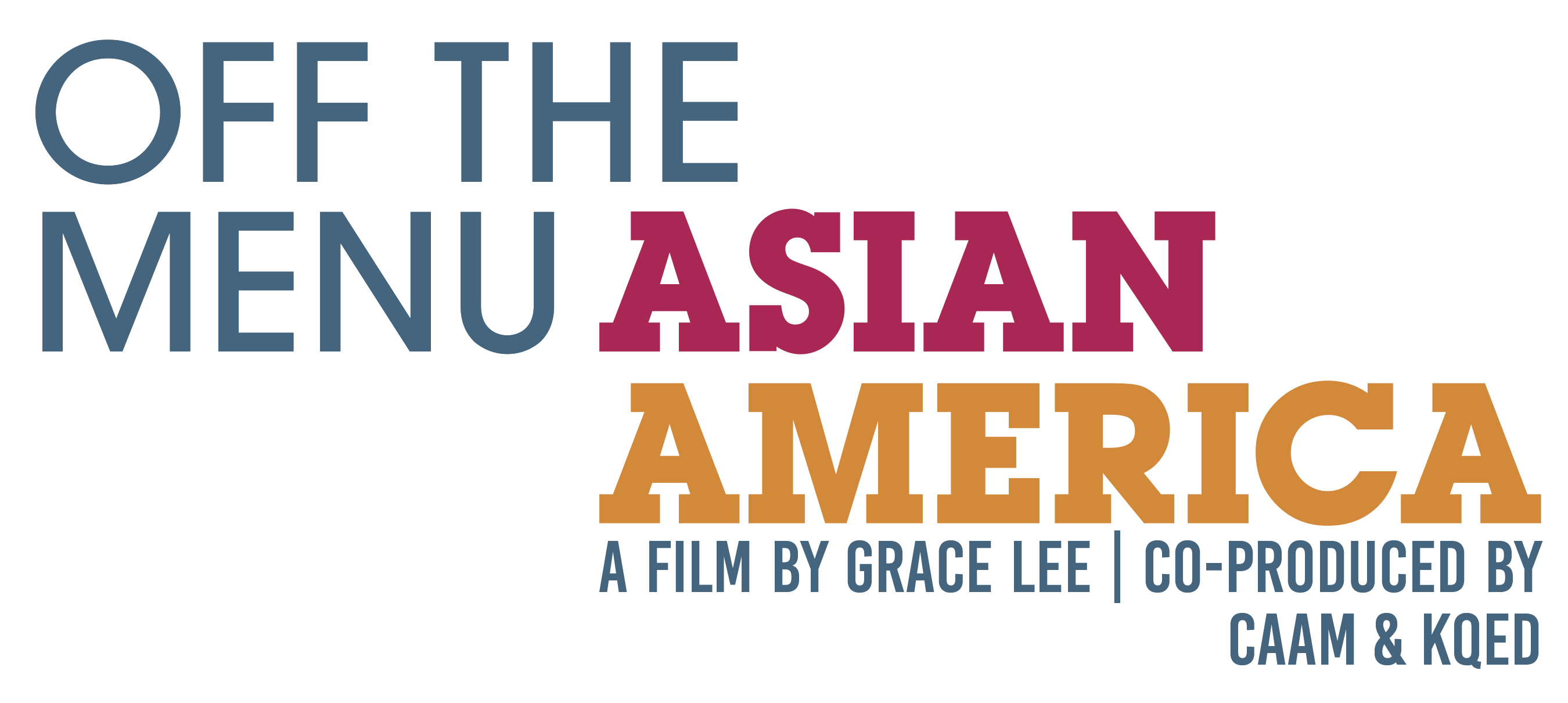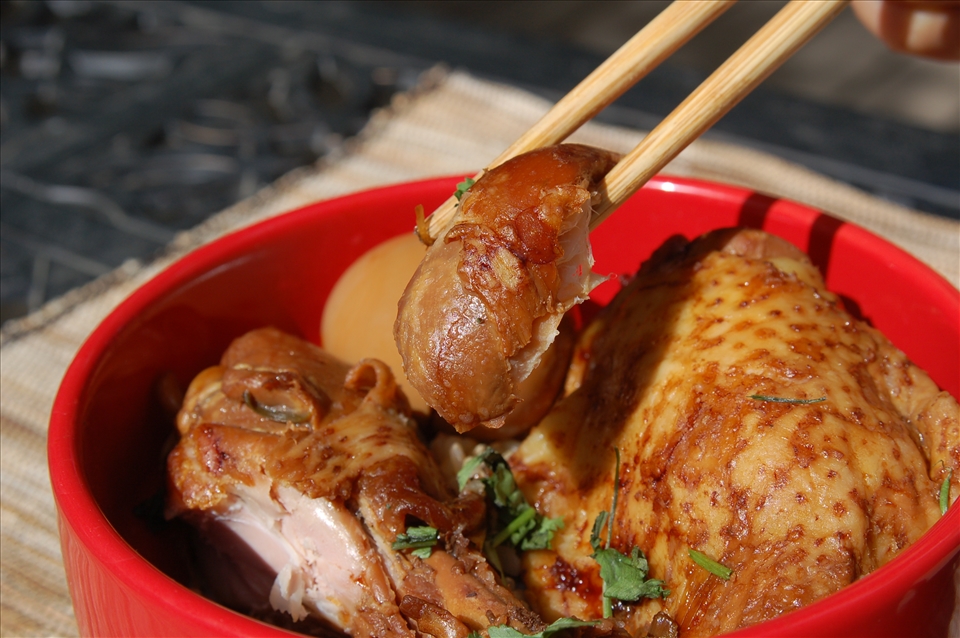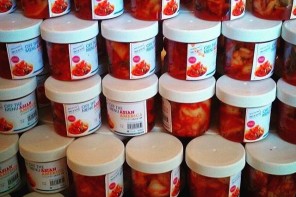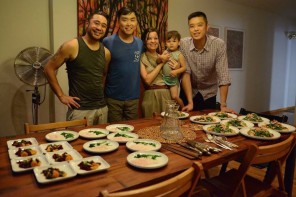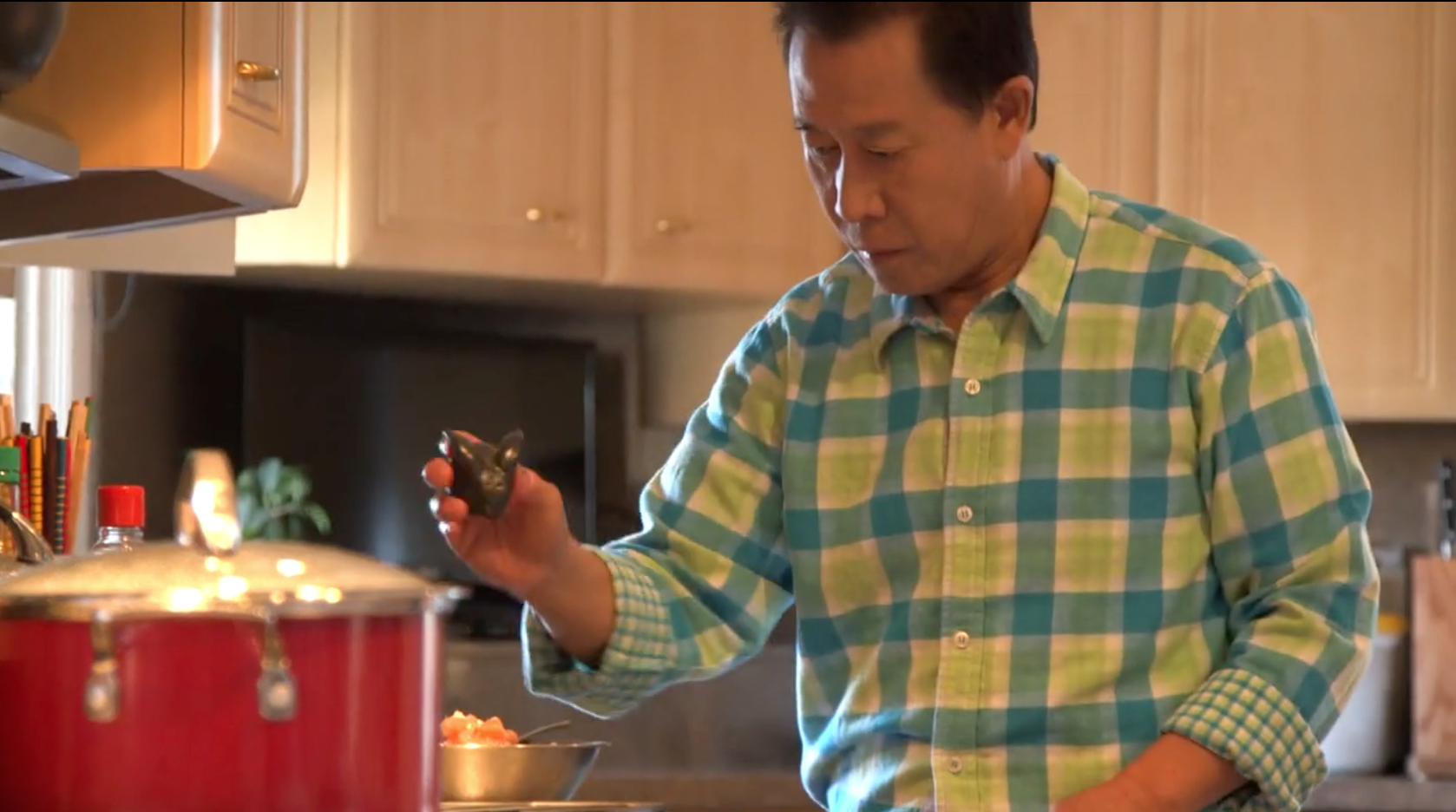My mother never forgot the peach ice cream she savored as a teenager, at the home of a rich friend in Taiwan. That intense tang and sweetness, the lush creamy cold that she kept hoping her friend would serve again.
She never forgot the curry powder she sampled at the home of a friend whose father was a voyaging ship captain, the taste golden on her tongue, a taste that that hinted at all the other tastes she’d discover some day.
She never forgot the baked potato served at the home of her college English teacher, a missionary from the United States: huge, glistening with sour cream and butter and sprinkled with chives, a promise and a symbol of American bounty—big as the sedans in which she’d someday cruise down the U.S. interstate.
Tastes as vivid to her now as when she first tasted them a half-century or more ago. Can food in abundance ever be as delicious?
Growing up in the suburbs east of San Francisco, I knew only a full refrigerator and stocked pantry. When I complained about leftovers, my mother told me that when she was a child, they never had anything left after meals. Only later did I understand why—not with seven children diving their chopsticks into their bowls, not in China during the war against the Japanese and later the Communists. Not after her family sailed across turbulent seas and grew up in the lean years after the war on the island of Taiwan.
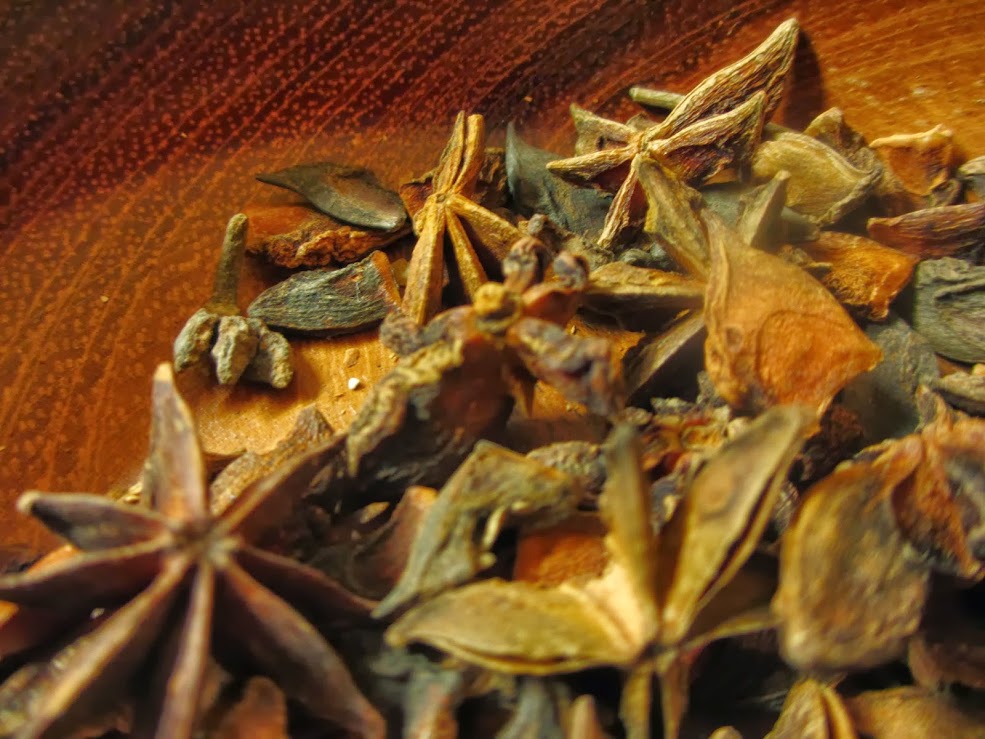
Both sides of my family were well-educated, and could afford to a maid, occasional meat, and sometimes shelter refugees. My paternal grandfather, as a naval officer, had studied at the Royal Naval College, in Greenwich, and my grandmother, a former English teacher, was known for her poetry. My maternal grandfather was a military judge and attorney, and my grandmother, a homemaker and excellent cook who fed generations of children and grandchildren.
“We had enough,” my mother insisted. Yet on their wedding day in Chicago, she and my father seem impossibly young, impossibly thin. They never forgot their hunger, not even when they became comfortably, proudly, upwardly middle-class. Not even when surrounded by choice and quantity at the supermarket. Not even when they could afford take-out meals of pizza and hamburgers, cans of Dinty Moore beef stew served over rice, boxes of Banquet frozen chicken, all the modern American processed wonders, in addition to the dishes conjured by my grandmother, glass noodle soup, soy sauce chicken, and glossy steamed white buns.
I worried not about hunger, but about how to fit in. When my first grade teacher asked the class what we’d eaten for breakfast, students piped up “Pancakes!” “French toast!”—dishes that had never crossed the threshold of our home. For my parents, and much of the world, what you ate for breakfast was what you eat at other meals—you ate what was available. No one else mentioned Campbell’s beef barley soup, a dish my parents considered hearty and convenient. But if I told the truth, I’d be singled out as the weird Chinese kid. I lied. “Cheerios,” I said.
Amid all this plenty, my parents never passed up free food, the tiny paper cups of coffee at the supermarket, crackers or cookies sitting out at the bank. Even if stale or cold, the availability made the snacks sumptuous. To this day, my mother saves every scrap, and she’ll ask for a to-go box even for the sauces and the bread. The freezer packed with sandwich bags containing a single bite of crust, a dollop of rice, and squiggles of mystery meat. Thrifty habits I’d adopted and adapted, saving vegetable trimmings and chicken carcasses for a nourishing stock, and making sourdough bread with wild starter, a mixture of flour and water inhabited by natural yeast caught from the air.
In his hunger, my father used to chomp on frozen pastrami, lacking the patience to defrost it in the microwave. A childhood of wartime deprivation taught him eat quickly and as much as possible, long after he’d become a successful structural engineer. In her hunger, my mother turned to agricultural research, to end famine and find new ways to feed the world safely.
“It’s my belief if people are well fed, they won’t get sick,” she said.
Once, after my parents stayed at the Doubletree Hotel, they handed me greasy paper sacks of the free chocolate chip cookies they’d collected on their trip. Half-eaten, because consuming the entire cookie was gluttonous. Saved, because tossing the leftovers was wasteful. Delicious, we could all agree. Each bite a reminder for my parents of the moments when they didn’t have more.
My mother never forgot the chocolate bar that she and her friends chipped in to buy at a vending machine when they passed through Oakland in the early 1960s. Brilliant students on their way to graduate school, they must have marveled at the shiny wrapper, at the rich smoky melting taste, that made the flavor of chocolate available in Taiwan seem counterfeit.
She never forgot the soft-boiled eggs she cooked overnight in her dorm, tucked on top of the radiator while snow fell thickly outside. The yolk golden and rich as the sun, the burst of protein hearty and sustaining.
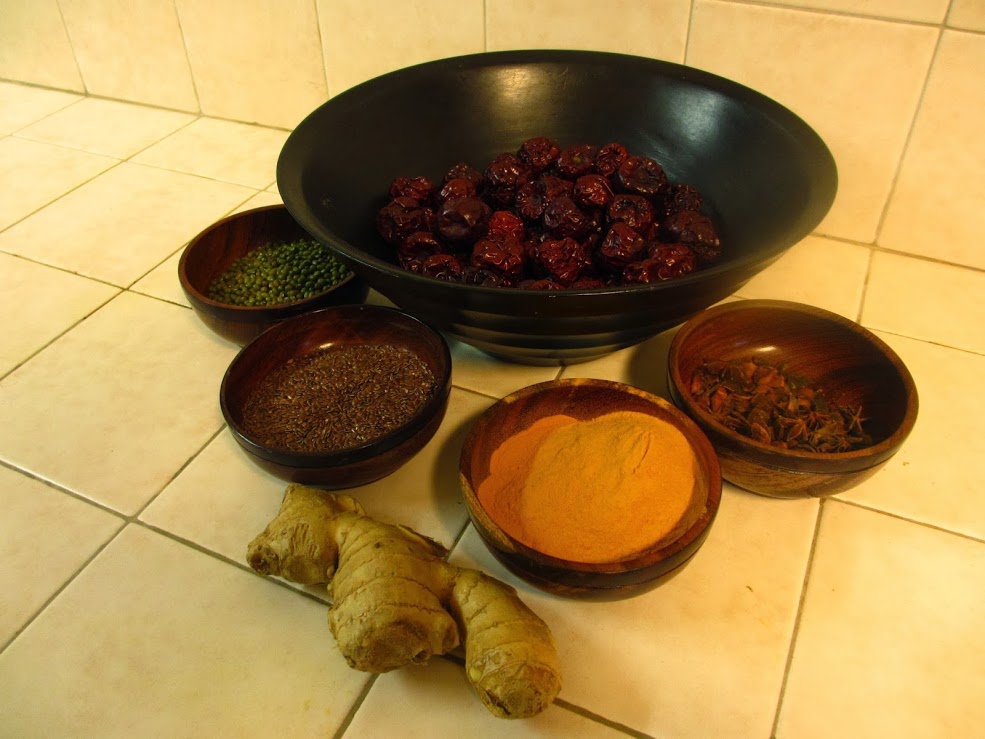 She never forgot the root beer floats my father used to buy her every time he drove up from Iowa to visit her while they were dating, a fizzing extravagance. The fine champagne purchased at a bargain price—thanks to a friend with access to the PX at a local base – served at their engagement party where the ravenous Chinese grad students ate everything up, forcing my parents to order more.
She never forgot the root beer floats my father used to buy her every time he drove up from Iowa to visit her while they were dating, a fizzing extravagance. The fine champagne purchased at a bargain price—thanks to a friend with access to the PX at a local base – served at their engagement party where the ravenous Chinese grad students ate everything up, forcing my parents to order more.
After my father passed away, my husband, twin toddlers, and I moved back home. I discovered my mother now spends her evenings in the kitchen. She never used to cook much, but I discovered she now spends her evenings in the kitchen. Aiming for speed and ease, she heaps turmeric onto prepared meats—“herb-rubbed beef roast,” according to the package—or grinds up apples, celery, cucumber and almond milk into green smoothies.
A different kind of hunger drives her now: a hunger to live. She wants to cure herself through food, to turn one hundred—one twenty! To heal eyes damaged by UV rays, she drank boiled goji berries, and within days, claimed she felt an improvement. Her nose was less runny and she felt more energetic. When I brought up the placebo effect, she insisted that food was medicinal. Her thinking seemed magical, a sign of how much control she wanted over her fate. Who wants to face mortality, to accept the twist fate and genetic luck-of-the-draw?
Not after a life in which in which she and my father always hungered for more. With hard work, persistence, and determination, you could achieve your every goal. A kind of immigrant hunger no food can ever sate.
Vanessa Hua is a former Steinbeck Fellow in Creative Writing and recipient of the James D. Phelan Award for Fiction whose work has appeared in the New York Times, Washington Post, Guernica, San Francisco Chronicle, The Atlantic, and elsewhere. She considers her slow cooker her sous chef and blogs about three generations living under one roof at threeunderone.blogspot.com.
Vanessa Hua’s chicken stock recipe
Combine vegetable trimmings—celery, carrot peels, onion skins—with a chicken carcass or two in a slow cooker. Cover with water, and set on low for 12-24 hours. Strain, chill, and skim off the fat. Season to taste with salt, pepper, thyme or bay leaves, a dash of balsamic vinegar or a squeeze of lemon.
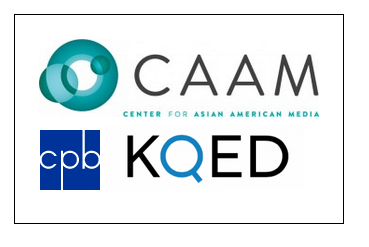 This story is a part of Off the Menu: Asian America, a multimedia project between the Center for Asian American Media and KQED, featuring a one-hour PBS primetime special by award-winning filmmaker Grace Lee (American Revolutionary: The Evolution of Grace Lee Boggs), original stories and web content.
This story is a part of Off the Menu: Asian America, a multimedia project between the Center for Asian American Media and KQED, featuring a one-hour PBS primetime special by award-winning filmmaker Grace Lee (American Revolutionary: The Evolution of Grace Lee Boggs), original stories and web content.
